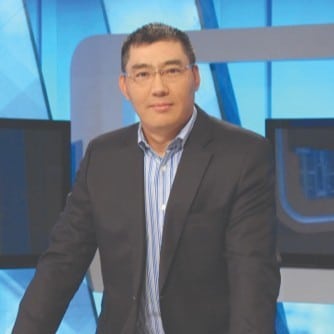Tariffs are no longer the distant threat that many in promo (and most other industries) viewed them as back in November. President Donald Trump has implemented global tariffs, kicking off what has become a full-on trade war.
Since then, several of the largest suppliers in the promotional products industry have reached out to distributor partners to let them know how they’ll be adapting to the new tariff rates.
- SanMar, PPAI 100’s No. 1 supplier, says it will make a single price change starting June 1, with the plan to hold that change through 2025. The firm also plans to shift as much production as possible from high-tariff to low-tariff countries like Honduras, where it makes most of its Port & Company and District T-shirts.
- On April 4, S&S Activewear, PPAI 100’s No. 5 supplier, which acquired PPAI 100’s No. 2 supplier alphabroder last year, announced it would hold pricing for the next two weeks before giving another update.
- Last month, PCNA, PPAI 100’s No. 3 supplier, informed customers of impending price increases solely due to inflation. The firm added that it didn’t anticipate any tariff-related increases until later this year.
According to PPAI Reseach’s bi-monthly survey of PPAI 100 companies, distributors and suppliers were already making strategic shifts in January and February. Perhaps relatedly, the survey also revealed a notable dip in promo’s revenue growth.
PPAI 100 distributors and suppliers were asked specific questions about navigating uncertainty amid external factors such as tariffs, the majority of which had not yet been implemented. Facing an inflation rate of 2.8% (and expected to rise), the reverberations of a trade war were already being felt in January/February, according to the results.
- More than half (58%) of suppliers reported that they were adapting their strategies due to new economic realities, whether anticipated or already felt.
- Meanwhile, 62% of distributors claimed they were refining their previous strategies.
For suppliers, this took the form of doubling down on U.S. manufacturing, optimizing pricing and refining go-to market strategies. For distributors, it meant price adjustments, sourcing flexibility or stronger customer engagement.

Ben Zhang
President & CEO, Greater Pacific
As Trump began to lay out his plans for tariffs, promo professionals seemed aware of the slippery slope that might make the supply chain more difficult to navigate.
“The idea of reciprocal tariffs could lead to a tit-for-tat escalation that further complicates trade dynamics,” Ben Zhang, president and CEO of Greater Pacific, PPAI 100’s No. 68 supplier, which sources roughly 70% of its products from China, told PPAI Media.
Import Challenges & Strategies
With global trade volatility affecting procurement, more than half of PPAI 100 distributors reported facing import challenges in January and February. They’ve handled those challenges with common strategies.
- Most distributors (85%) have been in contact with suppliers to renegotiate pricing structure to mitigate import costs.
- Three quarters (75%) have been aiming toward diversification of their sourcing, looking into the feasibility of shifting away from China.
- One strategy only available to the firms with the capital to make it happen has seen 5% of distributors try to stockpile inventory, a short-term approach that may have already proven significant in cost saving.
HALO, PPAI 100’s No. 2 distributor, has warned customers of the ramifications of global tariffs on the promo market.
“While the full impact will take time, one thing is certain: Costs across multiple industries are expected to rise. Promotional products, branded merchandise and corporate apparel are no exception,” the company writes, following up with multiple ways it is adapting, including prioritizing domestic manufacturing when possible.
With suppliers facing even greater revenue struggles in the early months of 2025, they have reported similar strategies as distributors. Renegotiating contracts to share tariff costs (74%) and sourcing diversification (70%) were the most popular routes taken by suppliers.
- They were also more willing and able to stockpile inventory with 48% trying to prepare that way.
- Less than 9% claimed they were absorbing all costs at this point.
Every affected distributor reported passing on costs through strategic pricing adjustments. More than half (64%) said that internal adjustments were made, such as cutting expenses or optimizing workflow, to protect margins (this was nearly identical to the percentage of suppliers making this claim).

Marla Ruttenberg
CFO, Spector & Co.
Despite the high difficulty in doing so in many cases, 61% of suppliers claimed to be attempting to reduce dependence on high-tariff regions. Many large suppliers are just as likely to admit that the infrastructure for production in other countries is often limited.
“There are products [sourced from China] you’re paying 65% tariffs on,” says Marla Ruttenberg, chief financial officer at Spector & Co., PPAI 100’s No. 35 supplier. “The problem is that some of these products aren’t available elsewhere. Even with these tariffs, finding a source outside of China for a better price is just not a thing.”
Recommendations For Trade Reform
Promo firms serve as examples of small and large businesses at the center of global trade. Policy decisions, such as the tariffs recently instituted, can have significant impact on them. As the recent report on promo’s slowed growth in January and February proves, even just the threat of or preparation for tariffs sends ripples through the industry.
For these reasons, PPAI 100 firms were asked by PPAI Research on what they view as appropriate approaches to relevant trade topics.
- Suppliers suggested the elimination of tariffs on products with no U.S.-made equivalent.
- A reassessment of tariff policies for long-term sustainability while keeping a balanced approach to handling any unfair tactics by China was also recommended by suppliers.
- Additionally, suppliers argued for transparency (as opposed to continuous uncertainty) surrounding tariff decisions and contend the U.S. should be working with, not against, allies such as Canada and Mexico.
RELATED: ‘Misconceptions And Confusion:’ Breaking Down Country Of Origin For Tariffs
“PPAI 100 supplier firms want trade policies that protect, not penalize,” says Alok Bhat, market economist and PPAI’s research and public affairs lead. “Clarity, consistency and strategic tariff reform are essential for long-term industry growth.”
- Distributors are pointing out the ways tariffs can disproportionally affect small businesses, calling for SBA lending program expansions, tax incentives for domestic production and flexibility in federal labor laws to support business growth.
- They also want a seat at the table when it comes to discussion on government spending on promotional products.
This week, promo leaders were in Washington for Legislative Education and Action Day (LEAD), where they met with members of Congress and their staffers to educate them and advocate for the impact and needs of the promotional products industry.
PPAI has long supported free trade. Serving members of all political stripes, the Association recognizes the need for policies that strengthen the U.S. economy and support domestic manufacturing. However, any measures – including tariffs – must be implemented strategically to minimize short-term economic disruption while setting the stage for long-term growth.

Drew Holmgreen
President/CEO, PPAI
Abrupt cost increases impact businesses of all sizes, from small distributors to global suppliers, ultimately affecting jobs, investment and product pricing throughout our industry.
“We advocate for a thoughtful approach – one that balances economic goals with the realities of supply chain dynamics,” says Drew Holmgreen, president and CEO of PPAI. “With support from our lobbying partners in Washington, we are in ongoing conversations with industry volunteers, trade groups and policymakers with the goal to ensure that any trade policies consider the full scope of their impact and allow businesses time to adapt.”
For questions or suggestions on regulatory or government affairs issues, please contact Rachel Zoch at RachelZ@ppai.org.
___
The full report will be available to all Professional-tier members via Premium Research within two months.
Upgrade your PPAI membership here to receive access to the full report.


